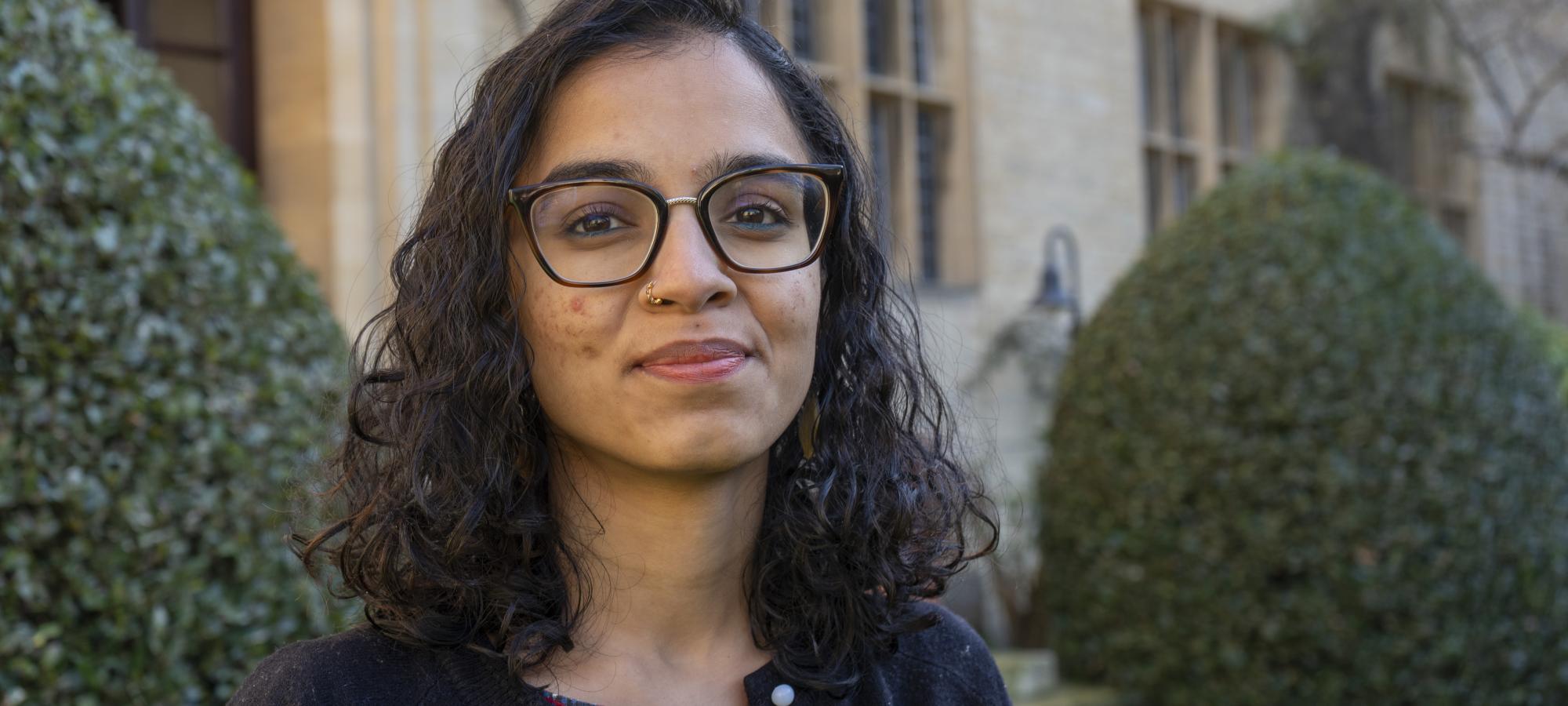
Introducing a new face to Campion Hall: Amishi Agrawal
We recently spoke with Amishi Agrawal, Integral Agroecology Research Officer with the Laudato Si’ Research Institute (LSRI) and The Integral Ecology Research Network (IERN) at Campion Hall. Amishi brings a global perspective to her role shaped by her experiences across India, Japan, and Uganda. In our conversation, we explore how her journey, values, and unexpected Jesuit connections inform her work on social justice, land, and food systems.
What brought you to Campion Hall, and how does it fit into your academic or personal journey so far?
Although I studied at Oxford before (My MPhil was at Lady Margaret Hall), I hadn’t known much about Campion Hall— in fact, I might have missed the Hall if Harriet hadn’t kindly met me outside, when I arrived for my interview. What drew me to apply for my job here was how the role was framed and how the interview unfolded. In the end, I was choosing between this role and a long-held dream job with the UN in Japan, but Campion Hall offered me something more integrated: not just research or development, but a blend of community, social justice and climate change inquiry which felt deeply aligned with my path.
Could you briefly tell us about your current role and what drew you to it?
In my role as Integral Agroecology Research Officer with the LSRI and more specifically with IERN, I’m drawn to how it combines social justice with land, farming, and food. Agroecology is rooted in the movements of peasants and small-scale farmers, and this resonates deeply with me. While I knew less about the “integral” aspect, the idea of bringing things together— rather than dividing them, as Western academia often does — was compelling. I also value how the research element of my role centres on asking questions rather than finding solutions and this feels important to me right now.
How have you found life at Campion Hall and in Oxford—has anything surprised or inspired you?
I am not from the UK; I came here after living in Japan, India and Uganda but I find Oxford as a town to be a diverse space, with something for everyone. Whether it's dinner conversations with a friend who is passionate about Evensong and choirs (this happened last night!) or connecting with migrant diaspora groups, the city and university speaks to different audiences, and I like that. I also appreciate Oxford’s bikeable, human-scale feel, which makes it less intimidating as a town. At Campion Hall, the welcoming atmosphere and meaningful conversations – people seem to create time and space for conversations - have surprised me, and I’ve enjoyed making many workplace friendships here.
Outside of your work, what interests or experiences have shaped who you are?
I would say living in India, Japan, and Uganda deeply shaped me through my informal education on what we understand to be the Global South, especially through my work with Pan Asian groups in Japan and with Pan African networks when I lived in Uganda. I feel I’ve been fortunate to receive warmth and trust from diverse communities— whether from professors, a chef from my neighbourhood in Japan or strangers —which has been profoundly meaningful. Though I left my home in India, aged 18, to study, I continuously merge worlds, expanding my sense of home and bringing diverse learnings into my life and work. My definition of ‘home’ has grown, and I now like to cross pollinate.
What do you hope to take away from your time here, and what’s next on the horizon for you?
Towards the end of my MPhil, I spent significant time in Uganda, where I realised how much I wanted to pursue research—but I wasn’t yet sure exactly where. For me, research must not only reflect my interests but also respond to what’s needed and where I can contribute meaningfully. I’m hopeful that my time at Campion Hall will provide the direction and opportunity to refine this focus, especially since my work on agroecology addresses urgent issues like land rights, education, and gender, rooted in African and more broadly, Global Majority, contexts.
My MPhil research on forced displacement and agroecology has made me want to pursue a PhD at some point. Growing up, I always envisioned my future career would be a mix of different roles; researcher, journalist, educator, and activist. While my current role is less about pure research and more about coordination and community engagement, it allows me to listen carefully to the struggles and successes of various groups. This experience helps me understand what is needed from public research—a practice I believe should be deeply connected to communities and accessible to the public.
I’m keen to integrate more fully into the local Oxford community whilst here too. I feel strongly that when I occupy a space, I have a responsibility to contribute to that space and to integrate, and for me, this includes not just the university but also the town. I already feel like I have started to make some meaningful connections.
An unexpected and serendipitous part of this role has been exploring its Jesuit connections. Before applying to Campion Hall, I will be honest, I hadn’t known much about the Jesuits, but then as I prepared my cover letter, I realised both my father and brother attended a Jesuit-run school in India called ‘St Xavier’s Senior Secondary School, Jaipur’. This personal link makes the role feel even more significant. I’m also inspired by the Jesuit activist Father Stan Swamy, whose work deeply moved me and whose sense of ethics I hope to embody and practice.

